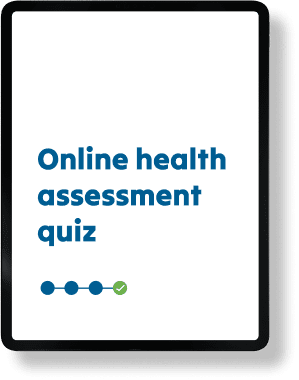Coeliac disease may cause many symptoms and medical issues in children. Coeliac disease commonly develops in childhood but is often overlooked. Coeliac disease can occur in children without obvious symptoms. Testing for coeliac disease is simple and making the diagnosis is important for improving health outcomes.
See your doctor about testing for coeliac disease if your child has any of the following symptoms or issues:
-
Persistent, unexplained abdominal or gastrointestinal symptoms
-
Faltering growth or failure to thrive
-
Prolonged fatigue
-
Unexpected weight loss
-
Unexplained iron, vitamin B12 or folate deficiency
-
Type 1 diabetes
-
Autoimmune thyroid disease
-
Dental enamel defects
-
Down’s syndrome
-
Turner syndrome
-
First-degree relatives with coeliac disease
-
A child who is regularly “out of sorts” or generally unwell
Diagnosing coeliac disease in children
How to screen for coeliac disease
A blood test for coeliac disease (also called ‘coeliac serology’) is done to measure the level of certain antibodies (part of our bodies defence system). Your local GP can organise this for you.
It is important that a combination of tests be undertaken rather than just one alone as antibody tests can be less sensitive in children.
The doctor should request either:
Transglutaminase-IgA (tTG-IgA) AND deamidated gliadin peptide-IgG (DGP-IgG)
antibody tests
Transglutaminase-IgA
(tTG-IgA) antibody test
AND the total IgA level
If your child’s coeliac antibody levels are above the normal range, this indicates they may have coeliac disease (the results of these blood tests on their own should not be used to diagnose coeliac disease without further investigation). Do not start a gluten free diet yet, even if the blood test is positive (it is possible to have a positive blood test and not actually have coeliac disease). Your child will need to see a specialist (a paediatric gastroenterologist) to confirm the diagnosis.
These tests are only reliable if your child is regularly consuming gluten. If gluten has been removed from the diet for more than around 6 weeks prior to testing, the blood test and small bowel biopsy results may be inaccurate or hard to interpret.
Intestinal biopsy
A diagnosis of coeliac disease is made by a gastroenterologist (a doctor who specialises in the gut). A paediatric gastroenterologist will care for children.
Your paediatric gastroenterologist will perform a gastroscopy (also called an endoscopy) to collect tiny samples (biopsies) of the small bowel. A gastroscopy is a day procedure done under light sedation; while your child is sedated, a ‘gastroscope’ (a thin flexible tube) is passed through the mouth and into the small bowel to allow the biopsies to be collected. The biopsies are examined under a microscope to help confirm a diagnosis of coeliac disease.
This procedure also helps to exclude other diagnoses that may be causing symptoms. Understanding the degree of small bowel damage is helpful for follow-up care.
Gene Testing (HLA DQ2/8)
The “coeliac gene test” tests for the main genes associated with coeliac disease: HLA-DQ2 and HLA-DQ8. At least one of these genes is necessary for coeliac disease to develop, but their presence alone does not mean the person has (or will ever get) coeliac disease.
This test is not always required but may be useful in certain situations, mainly as a way of excluding a diagnosis of coeliac disease. It can be useful when the diagnosis of coeliac disease is unclear. Some guidelines recommend it be used in conjunction with coeliac serology when assessing relatives of a person with coeliac disease to determine their potential risk for developing coeliac disease. It is done by blood test or cheek (buccal) scraping and can be ordered through your local doctor.
A negative gene test is very helpful as it means coeliac disease can be excluded (you must have a coeliac gene to be able to get coeliac disease). A positive gene test indicates susceptibility to coeliac disease but does not diagnose coeliac disease. Approximately half of the general population is positive for the coeliac genes but only a small proportion will ever develop coeliac disease (most people with coeliac genes will never develop coeliac disease).
A gluten free diet should only be started after confirmation of coeliac disease by your child’s gastroenterologist.
Frequently asked questions
What if my child has symptoms of coeliac disease but the coeliac antibody blood test is negative?
The coeliac gene test may be useful in such cases.
In cases where symptoms are severe, an urgent referral to a paediatric gastroenterologist is important to achieve a correct diagnosis (coeliac disease or otherwise) and relevant treatment.
What if my child is asymptomatic (has no symptoms) but has other risk factors for coeliac disease, e.g. positive family history?
If your child is symptom free and growing normally but has other risk factor/s for coeliac disease, it is recommended to wait until they are 4 years of age to do initial screening. The antibody blood tests are more accurate from the age of 4 and it can be difficult to justify a blood test earlier if your child does not have obvious symptoms.
If the antibody blood test is normal (negative) at age 4, consider repeating this test in future years, e.g. every 2-3 years during your child’s growing years, to ensure a diagnosis is not missed before the adolescent growth spurt.
The coeliac gene test may be useful in such cases.
Can coeliac disease be diagnosed without small intestinal biopsies?
The 2020 guidelines from the European Society for Paediatric Gastroenterology, Hepatology and Nutrition (ESPGHAN) suggest coeliac disease can be diagnosed in some children in certain circumstances if the following specific strict criteria are met:
- The tTG antibody level is more than 10 times the upper limit of normal
- On a blood sample collected at a different point in time, there is also a POSITIVE endomysial antibody (EMA) result (another highly specific coeliac antibody test)
- The diagnosis is made by a paediatric specialist/gastroenterologist (not a general practitioner) after detailed consideration of all the circumstances.
If these criteria are not met, then the “gold-standard” approach based on gastroscopy and small intestinal biopsies is necessary to confirm a diagnosis of coeliac disease.
How well this approach works in Australia and other countries is uncertain due to the limited availability of the EMA test, significant testing variation between laboratories and lack of standardisation of the tTG assay (which means every kit has a different “upper limit of normal”).
The decision to use the above criteria to make a non-biopsy diagnosis of coeliac disease may be appropriate in some situations but should only be made by a paediatric gastroenterologist/specialist.
These non-biopsy guidelines do not apply to adults, in whom small intestinal biopsies are always recommended for confirming the diagnosis.
Does my child with coeliac disease need a follow-up biopsy?
Not usually; If your child with coeliac disease is following a strict gluten free diet, has no troubling symptoms, is growing well, has good nutrient levels and their coeliac antibodies have returned to the normal range, it is very likely they have achieved good healing of their small intestine. A repeat gastroscopy to confirm healing is not required in this situation.
A repeat gastroscopy may be important if your child has ongoing symptoms, persistently abnormal antibody levels (note antibodies sometimes do take a while to normalise and this does not necessarily mean gluten is still being consumed) or low nutrients, or other issues that need further investigation. Regular follow-up is always important to monitor progress.
A chronic disease management (CDM) template for children has been developed by Coeliac Australia and can be used to guide ongoing care by doctors.















